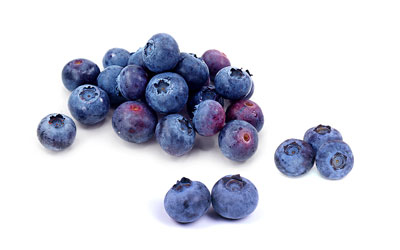Blueberries are one of the highest-ranked fruits for antioxidants due to the presence of a type of flavonoids called anthocyanins, which are also responsible for the fruit's dark blue color. Fruits rich in anthocyanins have proven useful for reducing systemic inflammation and bad cholesterol (LDL). However, the results of a variety of scientific studies on their effects on cardiovascular function have not been conclusive.
The Study
Since hypertension is an important risk factor for cardiovascular disease, which is the leading cause of death worldwide, a scientific team at King's College London (United Kingdom) decided to conduct a randomized clinical trial in order to determine the role of blueberry anthocyanins in vascular function.
A cohort of 40 healthy adults, both male and female, was given either 200 grams of wild blueberry drink or a control drink (containing fiber, minerals, or vitamins) every day for a month. Indicators of vascular health, such as endothelial dilation and blood pressure, were measured before and after the study.
The Results
After the one-month trial, the group that consumed 200 g of wild blueberry on a daily basis showed an increased blood flow, along with an improved vascular dilation and a reduced blood pressure. From the 63 anthocyanin plasma metabolites identified, 14 and 21 of them were linked to acute and chronic vasodilation improvements, respectively. The control group consuming a non-blueberry drink has shown no significant improvements.
What Does this Mean?
This is not the first study about the effects of blueberry consumption on cardiovascular health. In fact, previous research has suggested that Blueberries May Help Reduce Blood Pressure in menopausal women. However, the present clinical trial highlighted two important facts: first, that wild blueberries benefits for blood flow and vascular health are dose-dependent, and 200 grams per day seem to be an affective amount for regulating hypertension and improving vasodilation; and second, that 35 plasma metabolites derived from blueberry anthocyanin were identified as responsible for these antihypertensive effects.
The benefits of anthocyanin-rich fruits can be reaped in a variety of culinary ways, such as an antioxidant Dark Berry Smoothie, a refreshing Camu Camu Blueberry Chia Ice Cream, or a nutritious Overnight Oatmeal with Berries.
Sources
- The Journals of Gerontology, Circulating Anthocyanin Metabolites Mediate Vascular Benefits of Blueberries: Insights From Randomized Controlled Trials, Metabolomics, and Nutrigenomics, 2019





